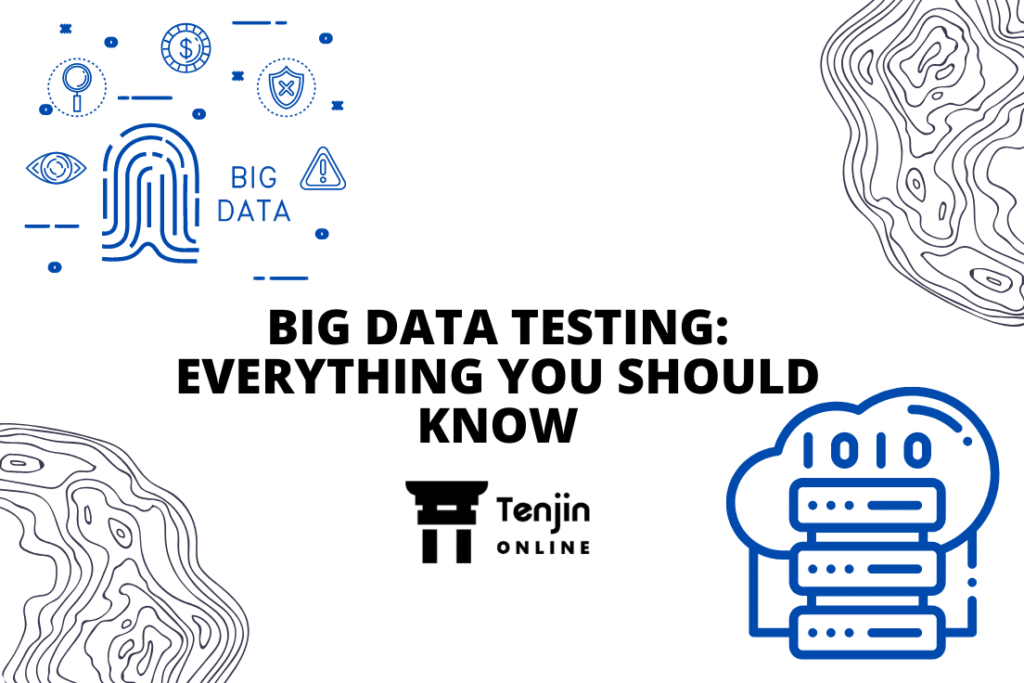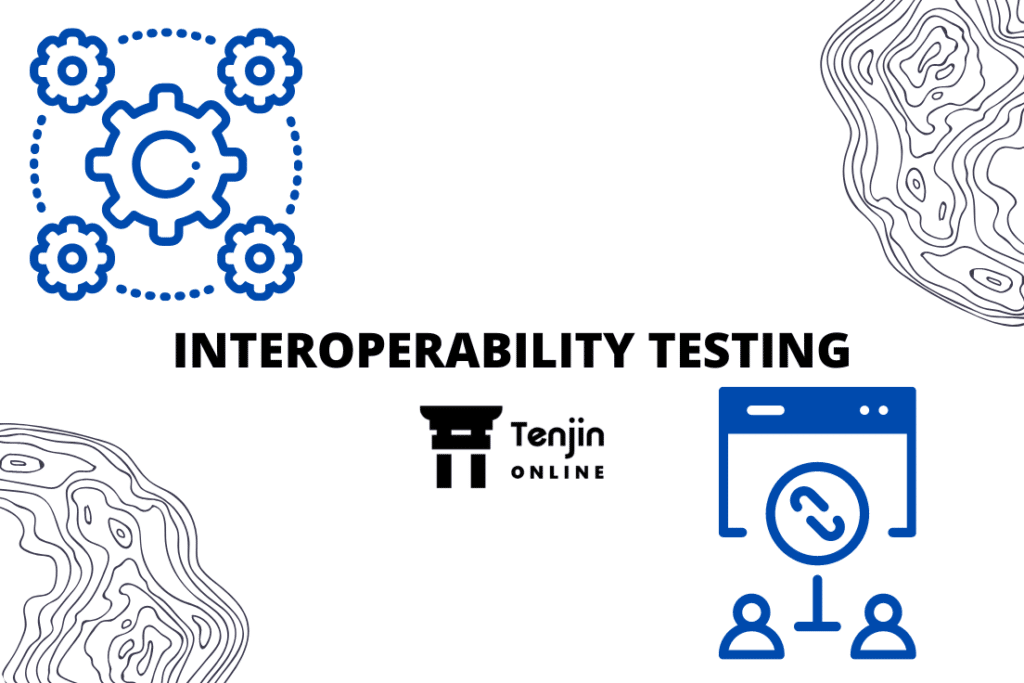
Big data testing is the process of ensuring that the systems and processes used to collect, store, and analyze large amounts of data are working correctly and accurately. With the growing volume and complexity of big data, it has become increasingly important for organizations to have robust and efficient testing strategies in place to ensure that their data is reliable.
One of the biggest challenges of big data testing is the sheer volume of data that needs to be processed. Traditional testing methods, such as manual testing or small-scale automated testing, are not suitable for handling the vast amounts of data that are generated by big data systems. This is where big data testing tools come into play, which are specifically designed to process and analyze large amounts of data in a distributed and parallelized manner.
Big data testing is a complex and multifaceted process that requires specialized tools and techniques to ensure that large sets of data are accurate, reliable, and can be effectively used for the intended purpose. Let us learn more about big data testing, associated challenges, and testing strategy.
Why is Testing Big Data Important?
Big data has become a crucial part of many industries and businesses, as it allows organizations to process and analyze vast amounts of information to gain valuable insights and make better decisions. However, with the increasing importance of big data, it is crucial that the data being used is accurate and reliable. This is where testing big data comes in.
Testing big data is the process of ensuring that the data being used is correct and free of errors. This includes checking for missing or duplicate data, ensuring data integrity and consistency, and validating the accuracy of the data. It also includes testing the performance and scalability of the systems used to process and analyze the data.
Need to test big data
- One of the main reasons for testing big data is to ensure that it is accurate and reliable. With large amounts of data, it is easy for errors to occur, whether they are caused by human error or system failures. These errors can lead to incorrect conclusions and poor decision-making. By testing the data, organizations can identify and correct any errors, ensuring that the data is accurate and can be trusted.
- Another important reason for testing big data is to ensure that the systems used to process and analyze the data are performing as expected. With big data, the volume and complexity of the data can put a lot of strain on the systems used to process it. This can lead to slow performance and scalability issues. By testing the systems, organizations can ensure that they are able to handle the volume and complexity of the data and that they are performing at an optimal level.
- Additionally, testing big data also helps organizations to identify and address any security vulnerabilities. With the increasing amount of sensitive information being stored in big data systems, it is crucial that these systems are secure and protected from unauthorized access. By testing the security of the systems, organizations can identify and address any vulnerabilities, ensuring that the data is protected.
There are several different methods used for testing big data, including manual testing, automated testing, and performance testing. Manual testing involves manually reviewing the data and systems to identify any errors or issues. Automated testing uses software tools to automate the testing process, making it more efficient and less prone to human error. Performance testing involves testing the systems’ ability to handle large amounts of data and complex data processing tasks.
Testing big data is crucial for ensuring that the data being used is accurate and reliable. It also helps organizations to ensure that the systems used to process and analyze the data are performing as expected and that any security vulnerabilities are identified and addressed. With the increasing importance of big data in many industries and businesses, it is essential that organizations prioritize testing to ensure that the data they are using is accurate and trustworthy.
Challenges in Testing Big Data
Testing big data systems can be a complex and challenging task due to the sheer volume, velocity, and variety of data involved. The following are some of the key challenges that organizations face when testing big data systems:
Data volume: The sheer volume of data generated by big data systems can be overwhelming. It can be difficult to test all possible scenarios and edge cases when dealing with such a large amount of data. Additionally, the time and resources required to test such large data sets can be prohibitive.
Data velocity: Big data systems are designed to handle high-velocity data streams, which can make it difficult to test the system’s performance and scalability. The ability to process data in real-time is critical to the success of big data systems and testing this aspect can be challenging.
Data variety: Big data systems often deal with a wide variety of data types, including structured, semi-structured, and unstructured data. Testing the system’s ability to handle different data types and formats can be difficult, especially when dealing with unstructured data.
Data quality: Ensuring the quality of data is a key challenge when testing big data systems. Data can be unstructured, incomplete, or inconsistent, which can lead to inaccurate or unreliable results. It is important to have a thorough understanding of the data and the ability to perform data quality checks in order to ensure accurate testing.
Integration testing: Big data systems are often composed of multiple components that need to be integrated and tested together. This can be a complex task, as it requires testing the integration of different technologies, such as Hadoop, Spark, and NoSQL databases.
Performance testing: Performance testing is critical for big data systems, as they must be able to handle large amounts of data and perform complex calculations in real-time. This can be difficult to test, as it requires simulating large data sets and heavy loads on the system.
Security testing: Big data systems often deal with sensitive and personal data, which makes security testing a critical aspect. It is important to ensure that the system is able to protect sensitive data and prevent unauthorized access.
To overcome these challenges, organizations can adopt a variety of testing strategies and best practices.
Big Data Testing Strategy
Big data testing is an important process that ensures the quality and accuracy of large datasets. With the increasing amount of data being generated and collected by organizations, it has become crucial to have effective testing methods in place to ensure that this data can be trusted and used for decision making. Let us explore some of the most commonly used big data testing techniques.
Data Validation: Data validation is the process of checking the data for accuracy and completeness before it is loaded into a big data system. This is done by comparing the data to a set of rules or constraints that have been established for the data. For example, a rule might be that a certain field must contain a number between 1 and 100. If the data does not meet these rules, it is flagged as invalid and must be corrected before it can be loaded into the system.
Data Profiling: Data profiling is the process of analyzing data to understand its structure, content, and quality. This is done by looking at statistics such as the number of records, the number of fields, the number of null values, and the distribution of values. Data profiling can help to identify any issues with the data, such as missing values or outliers, which can then be addressed before the data is loaded into a big data system.
Data Integration Testing: Data Integration Testing is the process of testing the integration of data between different systems. For example, if data is being loaded from a source system into a big data system, it is important to ensure that the data is being loaded correctly and that it is being integrated properly with the existing data in the big data system. This can be done by comparing the data in the source system with the data in the big data system and by running queries to ensure that the data is being integrated correctly.
Load Testing: Load testing is the process of testing the performance of a big data system under a specific load. This is done by simulating a large number of users accessing the system at the same time. The goal of load testing is to ensure that the system can handle the expected number of users and that it does not experience any performance issues.
Regression Testing: Regression testing is the process of testing the system after changes have been made to ensure that the changes have not caused any unintended consequences. For example, if a new feature is added to a big data system, it is important to ensure that the addition of this feature has not caused any issues with the existing functionality.
By implementing these big data testing techniques, organizations can ensure that their data is trustworthy and can be used for decision making.
Conclusion
Big data testing is a complex process which requires constant monitoring and maintenance to ensure that the systems and processes used to collect, store, and analyze big data are working correctly and accurately. Organizations need to have a robust testing strategy in place, which includes testing tools, data validation, performance testing, and security testing. By having a comprehensive testing strategy in place, organizations can ensure that their big data is reliable and actionable, and that they can make the most of the insights and opportunities that big data provides.
In conclusion, big data testing is essential for ensuring the quality and reliability of data. It’s a challenging task, but it’s crucial for the organizations to have a robust testing strategy in place. With the right tools and processes, organizations can ensure that their big data is accurate and actionable, which will enable them to make better and more informed decisions. With the increasing importance of big data in today’s business world, it is more important than ever for organizations to invest in big data testing to ensure that their data is reliable and actionable.



Leave a Reply
You must be logged in to post a comment.